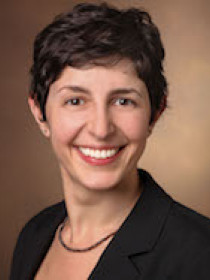
Sayeh Nikpay
Connect with Sayeh
About Sayeh
No Jargon Podcast
In the News
Publications
Assesses whether the expansion of Medicaid under the Patient Protection and Affordable Care Act results in changes in emergency department visits or emergency department payer mix. Tests whether the size of the change in emergency department visits depends on the change in the size of the Medicaid population.
Identifies conditions under which Medicaid expansion will improve hospital finances. Estimates average hospital reimbursements by payer source (Medicaid, uninsured, privately insured) in the inpatient, emergency department, and outpatient hospital settings and uses these estimates to simulate the impact of changes in payer mix on uncompensated care and hospital revenues.
Finds that the implementation of community-based health improvement programs was associated with a decreases of less than 0.15 percent in the rate of obesity, an even smaller decrease in the proportion of people reporting being in poor or fair health, and a smaller increase in the rate of smoking. Suggests guidance and expertise in measurement, data collection, and analytic strategies at the beginning of program implementation in order to better evaluate health improvement programs.
Believes that Paul Ryan's proposal would result in restrictions on coverage and benefits rather than state innovations to reduce program costs.
Examines changes in screening, diagnostic, and treatment procedures for cervical dysplasia after guideline introduction, and cost implications.
Finds that the Affordable Care Act's unprecedented coverage changes increased transitions to Medicaid and nongroup coverage among the uninsured, while strengthening the existing employer-sponsored insurance system and improving retention of public coverage. Suggests possible weakness of state Marketplaces, since people gaining nongroup coverage were disproportionately older than other potential enrollees.